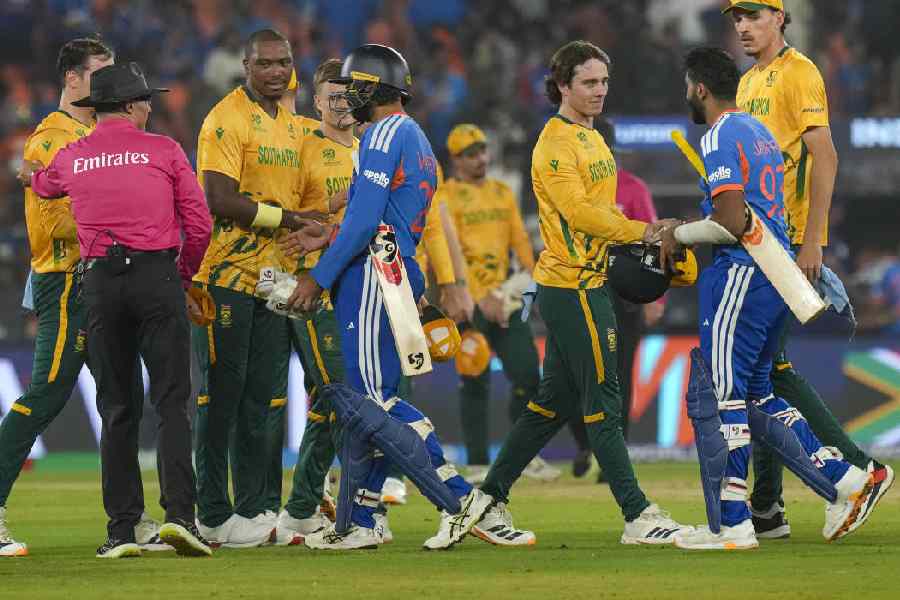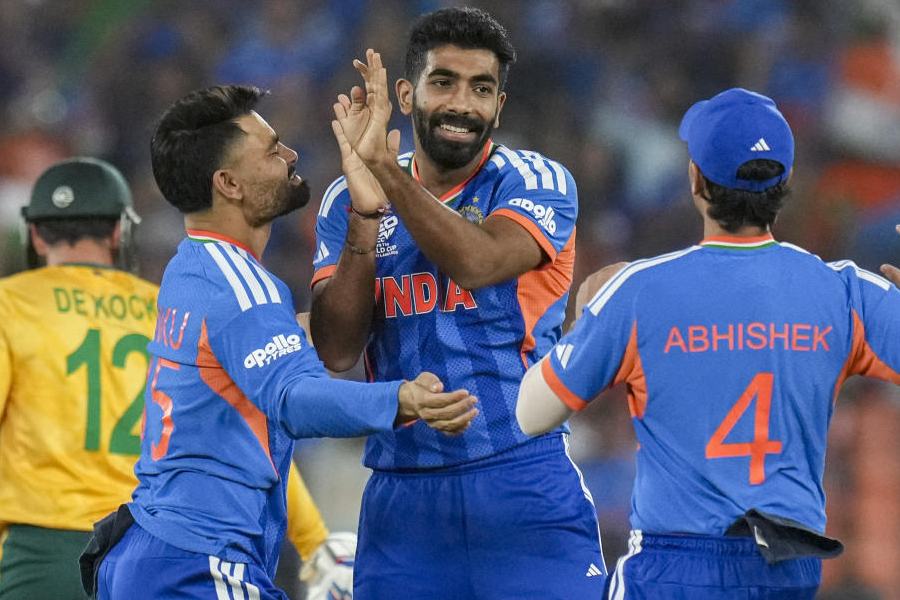 |
| Kaavya: Not a happy ending |
April 28: The fiction about an Indian-American teenager pushed relentlessly to succeed by ambitious parents has a happy ending.
The true life story of the Indian-born teen who wrote the book ? which she says bears similarities to her own life ? has taken a different turn. For 19-year-old Kaavya Viswanathan, unlike Opal Mehta, the fun comes at the beginning and the rejection at the end.
The self-confident, sophisticated Harvard student who became the toast of the publishing world and the envy of many an established author by bagging a $500,000 advance on her debut novel will have all copies of the book pulled off the shelves for plagiarism.
Just a day after saying it would not withdraw How Opal Mehta Got Kissed, Got Wild and Got a Life from bookstores, the publisher ? Little, Brown ? reversed its decision yesterday.
Opal tells the story of a hard-driving teen who earns all A’s in high school but gets rejected from Harvard because she forgot to have a social life. At the interview, she’s stumped when she’s asked what she does for “fun”.
Opal’s father concocts a plan code-named HOWGAL (How Opal Will Get A Life) to get her past the admissions office.
In a statement last night, Michael Pietsch, senior vice-president of the publishing firm, said that in an agreement with Viswanathan, the company had “sent a notice to retail and wholesale accounts asking them to stop selling copies of the book and to return unsold inventory to the publisher for full credit”.
Megan McCafferty, the author of Sloppy Firsts and Second Helpings ? from which Viswanathan has confessed to unintentionally copying passages ? has said she was “not seeking restitution in any form”. Crown Publisher, which brought out her books, said it is “pleased that this matter has been resolved in an appropriate and timely fashion”.
“I look forward to getting back to work and moving on, and hope Viswanathan can, too,” McCafferty said.
That wouldn’t be easy for the Indian-American. The scandal would not only be a devastating blow to her personal reputation and career, but bring under the scanner success stories scripted by young Indians who are often pressured by their families to excel.
The episode also raises the question whether the publishing industry can turn literary wannabes into successful authors through marketing hype and packaging.
Viswanathan worked not only with her publisher but also with Alloy Entertainment -- known as a “book packager” -- in developing the concept for the novel and its first four chapters. She has said Alloy was not responsible for any of the copying.
In many instances, editors at Alloy craft proposals for publishers and create plots and characters before handing them over to a writer (or a string of them). Alloy owns or shares the copyright with the authors and then divides the advances and any royalties with them.
“In a way, it’s kind of like working on a television show,” said Cindy Eagan, editorial director at Little, Brown Books for Young Readers, a sister imprint of Viswanathan’s publisher. “We all work together in shaping each novel.”
In an interview on Wednesday, Viswanathan said that after an initial meeting with the book packager, “They asked about my life, who I was?. Basically, it was like, ‘Send us an email writing about yourself that seems most natural’.”
Viswanathan said she wrote about not having a boyfriend, about the pressure her friends were feeling to get into good colleges and about being an Indian-American girl. “They liked that.”
Alloy then worked with her on the book’s first four chapters, making what Viswanathan described as very minor suggestions.
But the publishing contract Little, Brown signed is actually with Alloy, which holds the copyright to Opal together with Viswanathan.
The relationships between Alloy and the publishers are so intertwined that the same editor, Claudia Gabel, is thanked on the acknowledgments pages of both McCafferty’s books and Viswanathan’s Opal.
Gabel had been an editorial assistant at Crown Publishing Group, then moved to Alloy, where she helped develop the idea for Viswanathan’s book. She recently left Alloy.
A spokesman for Random House, the publishing company that owns Crown, said Gabel had left the company “before the editorial work was completed” on Viswanathan’s book.
“Claudia told us she did not touch a single line of Kaavya’s writing at any point in any drafts,” he said, adding that Gabel was one of several people who worked on the project in its conceptual stage.
The plagiarism row broke out last Sunday when Harvard Crimson reported that Viswanathan had plagiarised nearly 40 passages from McCafferty’s books.
Little, Brown and Viswanathan had earlier said she would revise the book to remove the copied passages and that they would reissue it. Viswanathan, reached last night, declined to comment.










